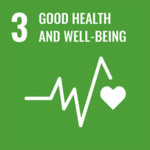
Cuidar Melhor
Promoter: Alzheimer Portugal
Partners: Calouste Gulbenkian Foundation, Montepio, Instituto de Ciências da Saúde da Universidade Católica, Sonae Sierra
Territorial reach: National
Participating municipalities: Almada, Barcelos, Barreiro, Braga, Cascais, Évora, Esposende, Funchal, Guimarães, Lisbon, Mirandela, Oeiras, Porto, Sesimbra
Target group: Informal caregivers, older people with dementia
SDG: 3. Good Health and Well-being

This initiative supports people with dementia and their families and/or informal caregivers, and is led by the Alzheimer Portugal Association.
It has two primary components: Technical Offices, created with the support or on the initiative of local authorities which, besides psychological and legal support, also offer clinical services at social cost; and Memory Cafés, which encourage get-togethers between patients and caregivers, specialists and volunteers, in informal environments which encourage them to share difficulties and constraints more freely. Capacity building and awareness-raising activities are also held for professional and family caregivers, respectively.
In 2019, the five Technical Offices located in Cascais, Oeiras, Sintra, Almada and Peniche helped more than 300 people. And the 20 Memory Cafés, situated in various locations across the country, together with the Café Memória faz-se à estrada (Memory Café on the road) initiative – a travelling Memory Café created in response to requests from small towns or organisations that do not have a permanent office -, helped over 1,500 people.
Alzheimer Portugal’s Offices are currently being standardised in accordance with the intervention model designed and tested under this project.
The fact that this project is aligned with the recently approved Dementia Health Strategy (with a significant contribution from pilot projects implemented by the Foundation and other organisations), will help make it become one of the public policy tools used in this field.
Sustainable Development Goals
This project contributes to the following SDG target:

Target 3.4
By 2030, reduce by one third premature mortality from non-communicable diseases through prevention and treatment and promote mental health and well-being.
